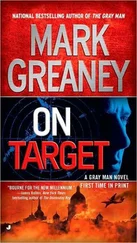Jack faked a smile. “Nothing.” He sat down on the edge of the bed, suddenly very tired.
Cathy sat next to him. “Jack?”
“It was Mary Pat. She wanted my approval for an operation that will put a young officer in harm’s way.” He paused. “I gave that approval.”
Cathy hugged him. “It’s Mary Pat, Jack. She knows what she’s doing.”
He shrugged. “It feels like bullshit sometimes. I have to make decisions based on less information than the people who seek my approval. I know a fiftieth of what she knows, and I told her to go ahead. Maybe I should have spent a couple days looking at the operation.”
Cathy said, “You know, Jack, there are a lot of people who are paid to read all that raw data and put it into an easily digestible form for you. You are upsetting the natural order when you try and micromanage.”
Jack smiled, the lines around his eyes pronounced with his lack of sleep. “I know. And I trust the people we have working for us. I just feel like I should have as much information as I can get to make decisions as important as this.”
“You can’t know everything.”
“True. But I can always know more.” He sighed a long sigh and let his shoulders slump in a fashion that only Cathy had ever seen. “Two more years of this. Jesus. What was I thinking when I ran this last time?”
Cathy brushed her hand across the well-worn worry lines on his forehead, around his eyes. “You’ll miss this when it’s over. But when it’s over . . . we’ll have a lot more time to relax.”
He smiled now, took her hand in his. “Yeah.” He felt better. Just a little, but it was enough to get him off his ass. He stood and went to change out of his presidential uniform and into his dad uniform.
It was the best part of his day.
33
Having Dom Caruso up in New York, thereby giving Clark four sets of eyes instead of just three, had made a huge difference in the Campus operation to gain intelligence in the actions of Sharps Partners.
The other change to their operation that was proving helpful was that now they were primarily tracking the movements of Edward Riley. There was no question that he was in charge of the operation to influence the committee vote, and after the honey trap in the sleazy massage parlor the previous day, Clark and his men wondered if he’d managed to line up at least one vote in North Korea’s favor.
Tonight Riley took a cab to Chinatown at nine, so Sam, Domingo, and Dom followed him down. While Riley sat in a nearly empty dim sum restaurant on Mott Street, Sam took the eye in a nondescript charcoal-gray sedan. He had to circle the block four times to catch an open spot on the curb, but he found a place on Bayard near the corner that gave him a great backward view into the restaurant, as well as a fair angle of view to both the north and south on Mott. Once he parked, he pulled his camera from its bag and put it down between his feet.
Dom was on foot—he’d arrived by subway, then walked across Canal Street—and he remained two blocks up on Mott and out of direct view of the dim sum restaurant. He wore a black polo shirt and khakis and he sat alone at a fast-food restaurant on the corner of Mott and Canal, but he had earpiece comms with the team and was ready to move closer if Sam had to bug out for some reason, or if Riley left the restaurant with his contact on foot.
Ding was dressed in warm-up pants and a light sweatshirt, and he jogged at a leisurely pace south and west of the dim sum restaurant. While he listened in his headset to Sam call out news from his static surveillance up the street, he circled over to Columbus Park and made his way through pedestrians, all the while ready to head back and take the eye if Sam ran into any problems.
With only three men in the team there wasn’t a lot of room for error, but Clark was back at the safe house on the Upper West Side, both monitoring the team’s movements on the computer and working directly with the analysts in Alexandria on developing a better target picture on the UN bureaucrats involved in the Sanctions Committee vote.
Just after nine-thirty p.m. a woman wearing a beige raincoat walked past Dom’s position on the corner of Canal and Mott, and then she turned to head south. She was one of a hundred pedestrians he’d tracked in the past ten minutes, so she barely stood out and he hadn’t gotten a close look at her face, but two minutes later when Sam described a woman entering the dim sum restaurant alone, Dom recognized her as a person who’d passed his static point.
And when Sam confirmed that the woman had sat down at Edward Riley’s table, Dom said, “She came on foot from the west on Canal. She either parked up there somewhere or else she came up out of the subway.”
“Roger,” said Ding. “Sam, we need her ID’d as soon as possible.”
“Working on it,” replied Sam. His digital Nikon had a 500-millimeter lens. With this equipment and at this range he knew he should be able to catch her through the window and get a good headshot. Unfortunately, however, the conditions on the street were less than ideal. All the neon signs around were reflecting off the glass, so Sam couldn’t get a perfect sightline of her face. So far he could just tell she had dark brown or auburn hair, it was pulled back in a bun, and she appeared to be in her forties. He said, “Only two females on the committee.” He opened a small notebook on the passenger side of the car and thumbed through the images.
He found the first female profile. “This is definitely not Noreen Paige from the USA . . .” He turned two pages and found the other. “But this could well be Marleni Allende from Chile. Can’t be sure yet, though. I’ll have to wait for her to move to get a better line of sight.”
As soon as he said this he saw movement at the table; he’d been looking for any exchange of property between them, but this wasn’t that. Instead, the woman was speaking with her hands, and Riley was lolling his head back, clearly in some frustration.
Sam spoke for the benefit of the rest of the detail. “Our boy looks pissed. This should be fun.”
—
Ten minutes into his meeting with the UN official from Chile, Edward Riley finally began to accept her words at face value. This was no bluff.
The bloody bitch had changed her mind.
Riley had brought the twenty-five thousand U.S. dollars with him. They’d agreed on this amount in an early conversation, that one while making the harbor crossing on the Staten Island Ferry several days earlier. She’d come up with an excuse to cancel the first meet for the exchange, two days after that, but she’d agreed on tonight without hesitation. Now Riley realized he should have been more concerned that the lady was getting cold feet about taking money for her vote.
He’d always known this could happen. So far he’d managed to bribe two of the nine officials, and he’d coerced an agreement out of two more by threatening them with scandalous revelations, but he had thought he had Marleni Allende in the bag already.
Allende had a problem with money. She was a middle-class woman back home, an international law professor who, through merit alone, worked her way into a respectable but not terribly high-paying job in New York City, and here she was surrounded by men and women who made more money and lived better for it. Over time her resistance to running up her credit cards had weakened; it was easy to spend lavishly here in New York, and she’d put herself twenty thousand dollars in debt.
As soon as Riley and the rest of Sharps Partners identified her as a target they snooped around her bank accounts, and in minutes he had his attack vector sorted. He approached her, shocking her greatly, but she certainly seemed excited by the prospect of a financial lifeline.
Читать дальше












